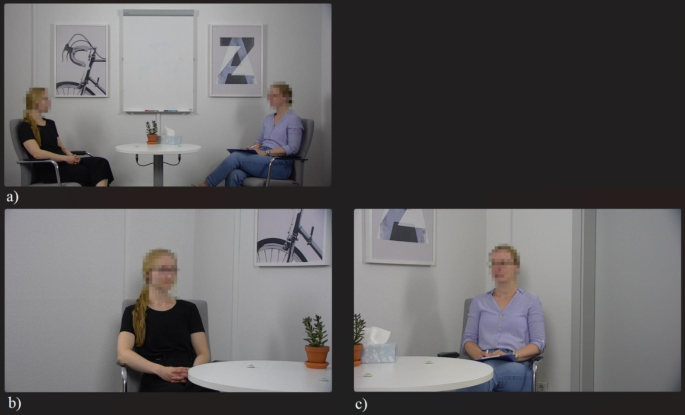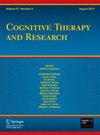心理治疗训练中的能力评定——一个复杂的问题
IF 2
3区 心理学
Q2 PSYCHOLOGY, CLINICAL
引用次数: 0
摘要
摘要背景可靠的能力评估是促进治疗师专业发展的关键。然而,能力评估很少包括在培训和研究中,因为这些程序是资源密集和昂贵的,通常依靠具有高水平专门知识和广泛培训的独立评估员。本研究旨在比较不同专业水平的评价者间信度(IRR)。我们还研究了不同相机视角对IRR的影响。方法在标准化环境下,根据能力评估对6位独立评价者进行IRR检查。2名评分者为经验丰富的心理治疗师(专家),4名心理专业学生(新手;有/无监督)。所有评分者评估了N = 359个学生与标准化患者一起扮演角色的视频,这些患者模拟抑郁症状和行为。对于每个视频,评分者独立评估基本沟通技巧(临床沟通技巧量表-简短形式;ccss)、心理治疗能力(认知治疗量表;CTS)、共情(共情量表;ES)和治疗联盟(帮助联盟问卷;哈克)。结果IRR因评分者的专业知识和评估方法而异,共情(ES)的类内相关系数(ICCs)最低;ICCs = 0.39-0.67)和心理治疗能力最高ICCs (CTS;icc = 0.66-0.78)。专家评分者与监督新手评分者的一致性较好(ICCs = 0.71 ~ 0.86)。摄像机视角对评分的可靠性没有影响。结论通过适当的培训和定期监督,新手在标准化角色扮演中评估治疗行为的信度与专家相当。关于更复杂的治疗情况的可靠评估,需要进一步的研究。本文章由计算机程序翻译,如有差异,请以英文原文为准。

Competence Ratings in Psychotherapy Training – A Complex Matter
Abstract Background The reliable assessment of competence is crucial for promoting the professional development of therapists. However, competence assessments are rarely included in training and research as these procedures are resource-intensive and costly, commonly relying on independent raters with high levels of expertise and extensive training. This study aimed to compare the interrater reliability (IRR) of raters with different levels of expertise. We also examined the impact of different camera perspectives on IRR. Methods We examined the IRR of six independent raters based on competence assessments in a standardized setting. Two raters were experienced psychotherapists (experts), and four were psychology students (novices; with/without supervision). All raters evaluated N = 359 videos of students performing role plays with standardized patients who were simulating depressive symptoms and behavior. For each video, the raters independently assessed basic communication skills (Clinical Communication Skills Scale–Short Form; CCSS-S), psychotherapeutic competence (Cognitive Therapy Scale; CTS), empathy (Empathy Scale; ES) and therapeutic alliance (Helping Alliance Questionnaire; HAQ). Results IRR varied depending on rater expertise and assessment measures, with the lowest intraclass correlation coefficients (ICCs) for empathy (ES; ICCs = 0.39-0.67) and the highest ICCs for psychotherapeutic competence (CTS; ICCs = 0.66-0.78). The concordance between expert raters and supervised novice raters was good (ICCs = 0.71-0.86). The camera perspective did not influence the reliability of the ratings. Conclusions With appropriate training and regular supervision, the novices assessed therapeutic behavior in standardized role plays with reliability comparable to that of the experts. Further research is needed regarding the reliable assessment of more complex therapy situations.
求助全文
通过发布文献求助,成功后即可免费获取论文全文。
去求助
来源期刊

Cognitive Therapy and Research
PSYCHOLOGY, CLINICAL-
CiteScore
5.30
自引率
0.00%
发文量
52
期刊介绍:
Cognitive Therapy and Research (COTR) focuses on the investigation of cognitive processes in human adaptation and adjustment and cognitive behavioral therapy (CBT). It is an interdisciplinary journal welcoming submissions from diverse areas of psychology, including cognitive, clinical, developmental, experimental, personality, social, learning, affective neuroscience, emotion research, therapy mechanism, and pharmacotherapy.
 求助内容:
求助内容: 应助结果提醒方式:
应助结果提醒方式:


